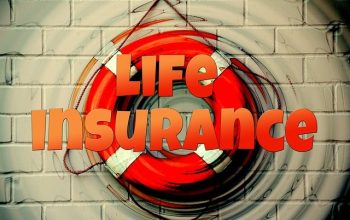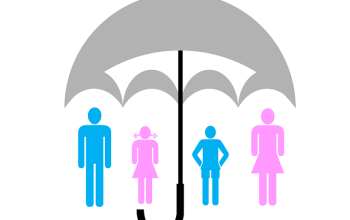Employer's Liability Insurance is a critical component of a business's insurance portfolio, particularly for small businesses with employees. It provides financial and legal protection against claims arising from workplace injuries or occupational diseases suffered by employees. This type of coverage complements General Liability Insurance, which addresses third-party claims for bodily injury, property damage, and reputational harm. Unlike Professional Liability Insurance, which covers claims related to professional services or advice, Employer's Liability Insurance is tailored to the unique risks inherent in the employer-employee relationship. Businesses should also consider Public Liability Insurance and Product Liability Insurance for protection against third-party property damage or personal injury claims, and product-related harm, respectively. Commercial Liability Insurance can be customized to encompass all these protections, offering a comprehensive shield against a range of liability risks. This robust coverage is essential for maintaining financial stability, legal compliance, and operational integrity in the event of work-related accidents or illnesses. Ensuring a proper balance among General, Professional, Public, Product, and Commercial Liability Insurance within Small Business Insurance packages is key to safeguarding against the varied legal exposures businesses face.
Employer’s Liability Insurance stands as a pivotal safeguard for businesses with staff, mandating its acquisition under various legal frameworks. This critical coverage shields against financial repercussions stemming from employee work-related injuries or illnesses, encompassing compensation and defense costs. Its role is indispensable in maintaining a company’s economic resilience. In the following article, we delve into the intricacies of Employer’s Liability Insurance, differentiating it from General, Professional, and Product Liability Coverage. We explore its importance for small businesses, ensuring they understand how this insurance fits within the broader context of their business liability coverage. Additionally, we examine the intersection of Employer’s Liability with Public and Product Liability Insurance to offer a comprehensive perspective on strategic risk management for enterprises of all sizes. This article serves as an informative guide to navigating the essentials of commercial liability insurance, ensuring businesses are well-prepared and protected.
- Understanding Employer’s Liability Insurance: A Cornerstone of Workplace Safety and Financial Protection
- Employer’s Liability vs. General, Professional, and Product Liability Coverage: Navigating the Spectrum of Business Liability Insurance
- The Imperative of Employer’s Liability for Small Businesses: Minimizing Risk and Protecting Your Enterprise
- Comprehensive Coverage: How Employer’s Liability Insurance Intersects with Public and Product Liability Policies
- Strategic Risk Management: Integrating Employer’s Liability Insurance into Your Business's Overall Insurance Portfolio
Understanding Employer’s Liability Insurance: A Cornerstone of Workplace Safety and Financial Protection
Understanding Employer’s Liability Insurance is pivotal for any business with staff, as it stands as a cornerstone of workplace safety and financial protection. This critical coverage goes beyond the scope of General Liability Insurance by specifically addressing the risks associated with employing individuals. It ensures that employers can fulfill their obligations to provide compensation and cover legal expenses should employees sustain work-related injuries or contract illnesses. Unlike Professional Liability Insurance, which deals with claims arising from professional services or advice, Employer’s Liability Insurance is tailored to the unique exposures of the employer-employee relationship. It’s a vital component for businesses seeking robust Business Liability Coverage, protecting against the myriad of risks inherent in operations. For small businesses, in particular, this insurance acts as a financial safeguard, mitigating the risk of catastrophic financial strain from employee claims. In the event of product liability issues, where a product causes harm, Employer’s Liability Insurance provides a safety net, ensuring that companies are not overwhelmed by the associated costs. This insurance is an indispensable element of Commercial Liability Insurance portfolios, safeguarding businesses against the potential fallout from work-related accidents and diseases. It’s a testament to its importance that Employer’s Liability Insurance is mandatory in many jurisdictions, underscoring its role as a foundational aspect of a comprehensive risk management strategy for businesses with employees. Public Liability Insurance, while related, does not cover employee-related claims; thus, it’s crucial for employers to understand the distinct nature and necessity of Employer’s Liability Insurance in their overall insurance strategy.
Employer’s Liability vs. General, Professional, and Product Liability Coverage: Navigating the Spectrum of Business Liability Insurance
Employer’s Liability Insurance is a critical element for businesses with workers, offering protection against claims from employees who experience work-related injuries or illnesses. This form of insurance ensures that employers can manage the financial implications of such claims, including compensation and associated legal costs. It is distinct from other types of business liability insurance, which include General Liability Insurance, Professional Liability Insurance, and Product Liability Insurance. While Employer’s Liability Insurance is specifically tailored to cover employment-related risks, General Liability Insurance extends protection to third-party claims for bodily injury, property damage, and reputational harm that occur during the course of business operations. On the other hand, Professional Liability Insurance, also known as Errors and Omissions (E&O) insurance, is designed for businesses offering professional advice or services, shielding them from claims arising from alleged negligence or errors in their professional capacity.
In contrast to these, Product Liability Insurance is essential for businesses that manufacture, distribute, or sell products. It covers the risks associated with product defects, malfunctions, or failure to provide adequate warnings or instructions, safeguarding against claims of harm caused by the product. For small businesses, understanding and securing the appropriate Business Liability Coverage is crucial as it can encompass various exposures depending on the nature of the business. Commercial Liability Insurance often includes a combination of these coverages, providing a comprehensive shield against a wide range of liability risks. Small businesses must carefully evaluate their operations to determine the specific types and amounts of coverage they need to protect their assets and maintain financial stability in the face of potential claims.
The Imperative of Employer’s Liability for Small Businesses: Minimizing Risk and Protecting Your Enterprise
For small businesses, the imperative of securing comprehensive Employer’s Liability Insurance is paramount in today’s litigious environment. General Liability Insurance, which often includes Employer’s Liability as a critical component, shields entrepreneurs from financial ruin by covering work-related injuries or illnesses sustained by employees. This protection extends beyond the workplace, ensuring that small business owners are not personally liable for employee claims arising from accidents or occupational diseases contracted during the course of employment.
Incorporating Business Liability Coverage into your insurance portfolio is not just a legal requirement but also a strategic move to safeguard your enterprise against unforeseen events. This coverage encompasses Professional Liability Insurance, which guards against claims related to professional services or advice provided by the business that may result in harm or financial loss to clients. Additionally, Public Liability Insurance protects against third-party claims for damages or injury caused by the business operations. Product Liability Insurance is equally important, covering potential claims if a product causes harm. Small Business Insurance packages often bundle these coverages together, offering tailored protection that aligns with the specific risks associated with the business’s operations. By investing in such comprehensive coverage, small businesses can navigate the complexities of liability risks confidently, ensuring both their financial stability and the well-being of their employees, which is essential for long-term success and growth.
Comprehensive Coverage: How Employer’s Liability Insurance Intersects with Public and Product Liability Policies
Employer’s Liability Insurance is a critical component of a robust liability protection strategy for businesses with staff. It specifically addresses the legal and financial responsibilities that employers have towards their employees, particularly in scenarios where workplace injuries or occupational diseases occur. This form of insurance is distinct from General Liability Insurance, which covers third-party claims, but it complements this coverage by ensuring that a business can manage its obligations to its workforce without undue financial burden.
Furthermore, Employer’s Liability Insurance intersects with other liability policies such as Public and Product Liability Insurance, which are crucial for small businesses in particular. These policies extend beyond employee-related incidents to cover claims arising from third-party property damage or personal injury due to a business’s products or operations. For instance, Professional Liability Insurance, another component of Business Liability Coverage, protects against claims of negligence or harm resulting from professional services rendered, filling gaps that Employer’s Liability Insurance does not address. In the event of a claim, Commercial Liability Insurance ensures that businesses are equipped to handle legal defense costs and compensation payments, thereby maintaining their financial stability and operational continuity. The integration of these liability insurance types is essential for comprehensive protection, as each serves a distinct purpose within the overall risk management framework of a business. This synergy among the various liability policies not only safeguards a company’s assets but also its reputation and longevity in a competitive marketplace.
Strategic Risk Management: Integrating Employer’s Liability Insurance into Your Business's Overall Insurance Portfolio
Integrating Employer’s Liability Insurance into your business’s overall insurance portfolio is a strategic move that complements other forms of liability coverage, such as General Liability Insurance, Professional Liability Insurance, and Business Liability Coverage. This holistic approach to risk management ensures that your company is protected from various legal liabilities that can arise from the operations of your business. Employer’s Liability Insurance specifically addresses the risks associated with employing staff by covering work-related injuries or illnesses. This form of insurance is mandatory and provides a financial safety net against compensation claims and associated legal costs, which could otherwise impose a significant burden on the company’s finances.
Furthermore, a robust risk management strategy for small businesses should also consider additional liability coverages like Public Liability Insurance and Product Liability Insurance to safeguard against third-party claims. Commercial Liability Insurance can further extend protection by covering a broader range of risks, including those not explicitly outlined in Employer’s Liability Insurance policies. By thoughtfully integrating these various types of insurance, businesses can create a comprehensive shield that protects against a wide array of potential liabilities. This strategic approach to risk management not only helps maintain financial stability but also fosters an environment of trust and security for both employees and customers, which is essential for the longevity and success of any business.
In conclusion, Employer’s Liability Insurance stands as an indispensable shield for businesses with staff, ensuring both the well-being of employees and the fiscal health of the company. Its necessity is underscored by its role in providing coverage against work-related injuries or illnesses. As a mandatory requirement, it complements broader Business Liability Coverage, which encompasses General Liability Insurance, Professional Liability Insurance, and Product Liability Insurance, offering a comprehensive risk management solution for small businesses to large enterprises alike. Integrating Employer’s Liability Insurance into a robust commercial insurance portfolio is not just a compliance measure but a strategic decision that aligns with the prudent operational practices of responsible businesses. It is a testament to a company’s commitment to safeguarding its most valuable assets: its people and its future.



